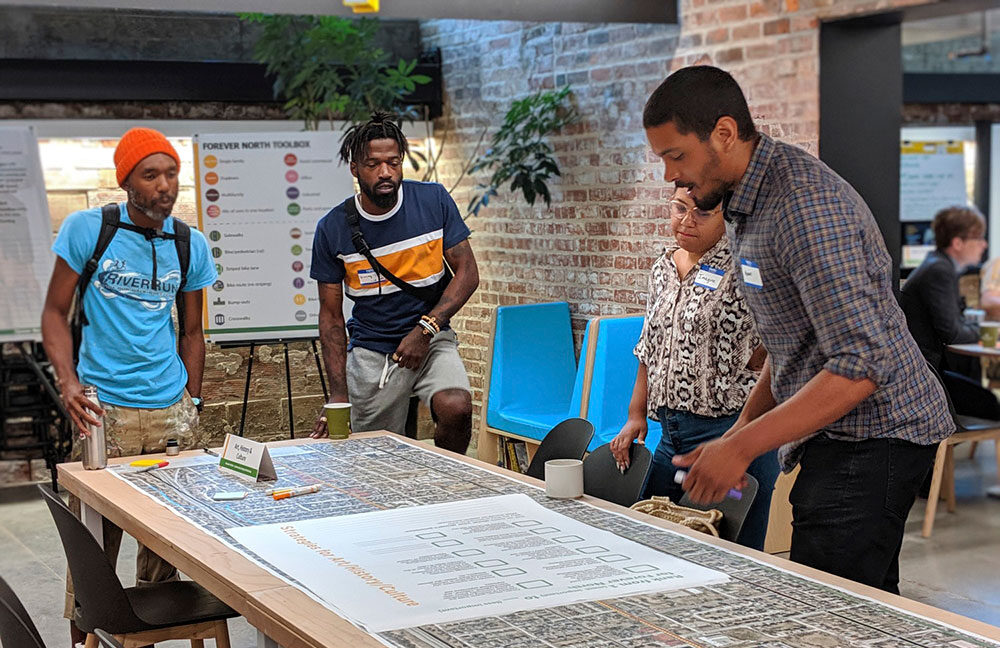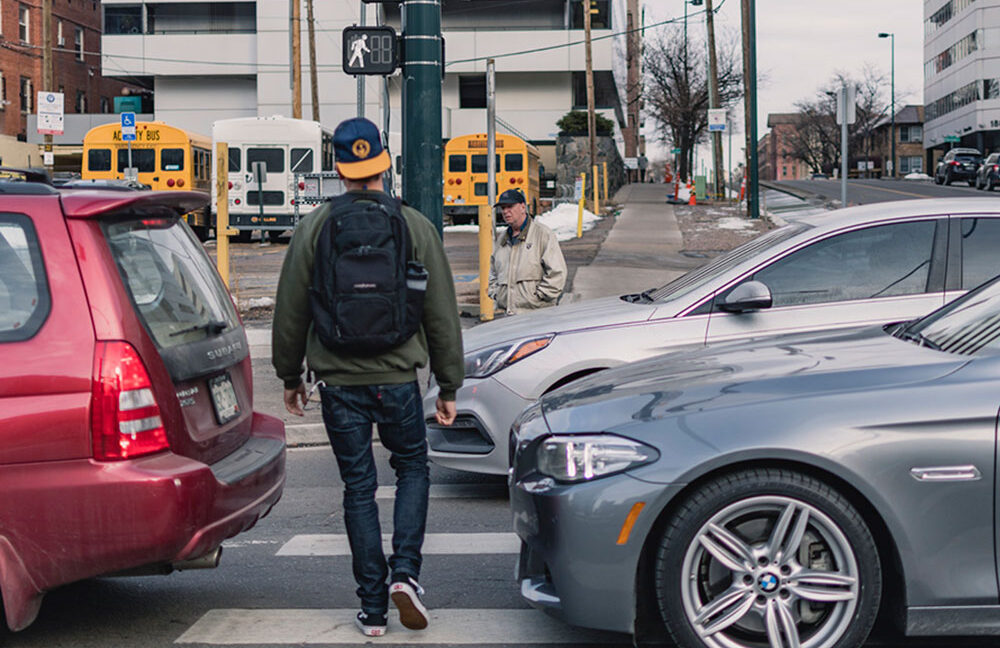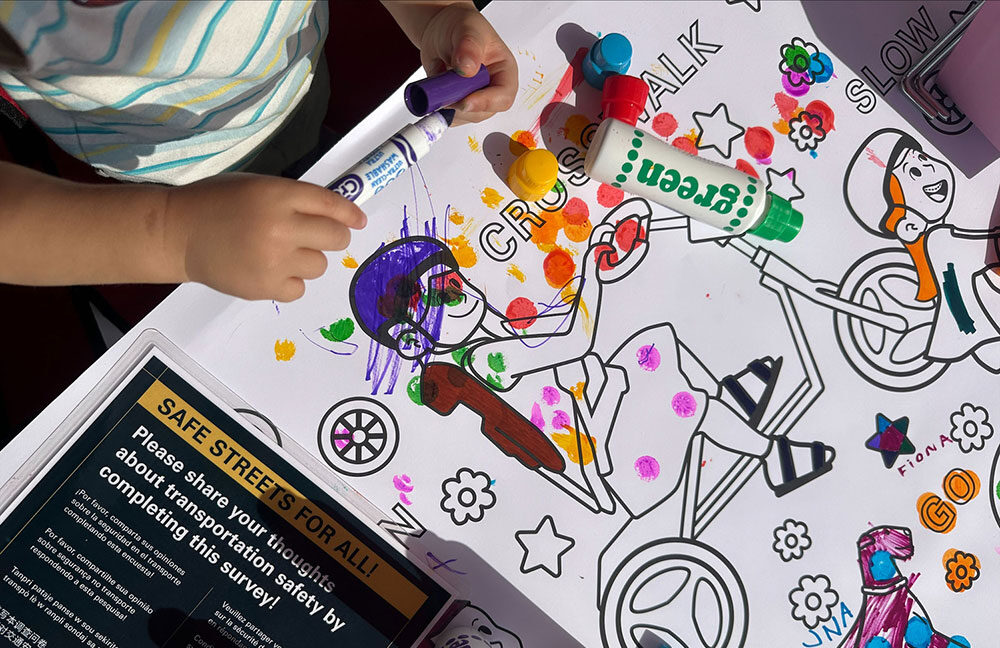The New E’s of Transportation
To build a transportation system for people — not just cars — we need to build a culture of ethics, equity, and empathy.
The transportation industry has spent 100 years planning, designing, and building streets that favor one form of travel — the automobile — above all others. The result is streets that are unsafe and uncomfortable for people walking, biking, and taking the bus; cities that are clogged with traffic and air pollution; communities that have been divided or demolished; and greenhouse gases that are contributing to climate change.
The conventional approach of engineering, education, and enforcement is no longer enough to ensure that our streets meet the needs of the 21st century. It’s time to change the way we do business. In 2019, Toole Design proposed a new set of E words to guide the transportation profession: ETHICS, EQUITY, and EMPATHY.
Since then, we have witnessed more than ever the need for these New E’s, as our streets became the site of racist violence and antiracist uprisings, and as the pandemic shed further light on racial, social, and economic inequities. We know that silence is not acceptable, and we are encouraged by recent shifts in the transportation industry that show a new commitment to sustainable safety and to reconnecting communities that have been divided. We are daring to hope for more bold changes. And we are committed to continuing to build a better transportation system through ethics, equity, and empathy.
ETHICS
Our transportation system kills 40,000 people a year in crashes (and injures hundreds of thousands more) and is responsible for more than a quarter of greenhouse gas emissions. Clearly, our industry has become too reliant on implementing solutions that meet “minimum standards” without sufficiently considering larger impacts of each design decision we make.
We believe that engineers, landscape architects, and planners have an ethical obligation to develop solutions that improve the safety, health, and welfare of the public so that fewer of our roadways are dangerous by design.
How can we uphold our ethical obligation? Read Bill Schultheiss’s take on ethics in transportation design.
 equity
equity
Equity means distributing resources to people in a just and impartial way. It’s not giving everyone the same thing, but rather giving everyone what they need today while considering how existing power structures have governed resource distribution in the past.
From redlining to Jim Crow to urban renewal, the built environment has often been ground zero for systems of oppression. As transportation professionals, we face constant opportunities to either dismantle or perpetuate inequities. We must recognize them and act accordingly.
How can we improve equity? Read Tamika Butler’s take on transportation equity.
empathy
Empathy is the capacity to see, hear, and feel what another person is experiencing, from within their frame of reference. Empathy fuels a better connection with the people we serve, which inspires creative, positive, and community-focused solutions.
As transportation engineers, we have to be sure not to overlook the needs of the people our work is meant to serve. We need a human-centered approach to planning and engineering.
How can we be more empathetic? Read Kristen Lohse’s take on empathy in transportation.
The New E’s Podcast
How did the original three E’s shape the world of transportation planning, design, and engineering? What will it take to change the systems we have in place to make better decisions in the future? Gain background, perspective, and insight by listening to the New E’s of Transportation podcast.
Episode 1: Introducing the New E’s
Hear Jennifer Toole, Andy Clarke, and Leah Shahum of the Vision Zero Network talk about how to break free of professional silos and change the way that transportation professionals think about their work. (September 21, 2019)
Episode 2: Ethics
What ethical responsibility do we have to protect the traveling public? Hear Jennifer Toole, Bill Schultheiss, and Jeff Paniati of the Institute of Transportation Engineers talk about the role of ethics in the transportation profession. (October 23, 2019)
Episode 3: Empathy
Hear Jennifer Toole, Kristen Lohse, and Peggy Martinez of Creative Inclusion talk about the importance of empathy in designing transportation systems that serve a community of travelers with different needs and capabilities. (January 16, 2020)
Listen and Subscribe
Beyond Ethics, Empathy, and Equity
While we believe that ethics, equity, and empathy are essential to changing the status quo, they are not the only E’s that will move us in the right direction.
To achieve a transportation network based on human-centered design, we must be moved by emotion to ensure that people of all ages and abilities can joyfully experience places built for them. Our concept for the future must start with people’s vision of their own community, not what’s left over after we’ve accommodated the needs of motor vehicle traffic.
Tackling environmental challenges of climate change, energy supply, and pollution is an ethical imperative. The promise of accessing economic opportunities is an essential part of broader equity conversations. And a commitment to engagement is integral to bringing genuine empathy to our professional duties.
Ultimately, the words we use must reflect the human values that we wish to see in our transportation network. Only then will we be able to plan, design, and engineer streets that serve everyone.

